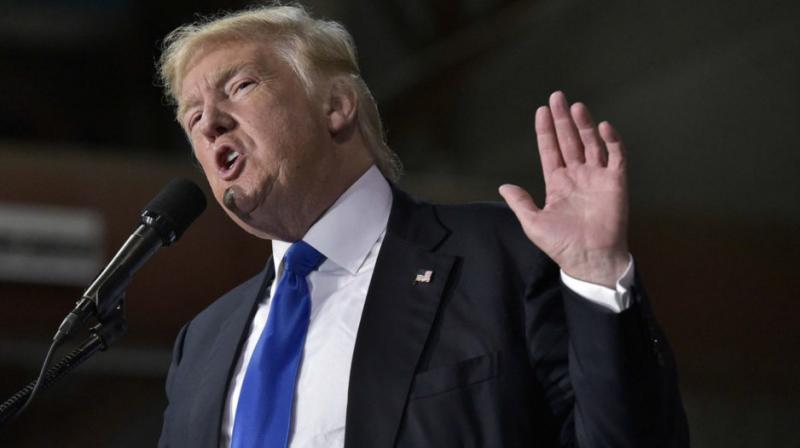US Senate passes Russia sanctions, sends bill to President Trump
New sanctions against Iran and its Islamic Revolutionary Guard Corps are also included in the bill.

Washington: The US Senate on Thursday passed bipartisan sanctions on Russia, Iran and North Korea, sending the package to President Donald Trump, who must decide whether to accept the tough approach to Moscow or veto the measure.
The sanctions, which were approved on a 98-2 Senate vote and overwhelmingly passed the House on Tuesday, are sure to antagonize the Kremlin as well as European nations fearing their companies will be penalized.
The measure, which notably constrains Trump's ability to waive the penalties, is aimed at penalizing the Kremlin for meddling in the 2016 US presidential election and Russia's annexation of Crimea.
Senate Minority Leader Chuck Schumer said the bill would address the failure so far to punish Russian President Vladimir Putin for what he described as “stunning breach” of a sovereign nation’s elections. "That all changes today," he said.
Senator John McCain, who chairs the Armed Services Committee and is a long-time harsh critic of Moscow, applauded the measure that "finally holds Russia accountable for its brazen attack" on US elections.
"The Senate's overwhelming vote today sends an important message that America will not tolerate attacks on our democracy or national security interests," he said.
But the bill could end up penalizing European firms that contribute to the development of Russia's energy sector.
New sanctions against Iran and its Islamic Revolutionary Guard Corps, which stands accused of supporting terrorism, and North Korea, for its missile tests, are also included in the bill.
Key among the provisions is one that handcuffs the US president by complicating any of the leader's unilateral efforts to ease penalties against Moscow in the future -- effectively placing him under Congress's watch.
Trump has faced accusations that his administration had sought to reassure Moscow that sanctions imposed near the end of the Obama administration could be lifted under a new presidency.
Initially, Trump resisted the sanctions legislation. But faced with near-total consensus among Republican and Democratic lawmakers, the White House blinked, saying this week that Trump was "reviewing" the bill.
US lawmakers, including Republican leaders, have remained wary of the intentions of the billionaire businessman-turned-president -- who has called for better relations with Moscow -- regarding a relaxation of pressure on Putin.
But even if Trump were to veto the legislation, Congress would likely be able to overcome such a blockage with a two-thirds majority in each chamber.
Putin himself lashed out at the US sanctions effort on Thursday, warning that Russia would ultimately have to retaliate.
"We are behaving in a very restrained and patient way, but at some moment we will need to respond," Putin said at a news conference after talks with his Finnish counterpart Sauli Niinisto.
"It's impossible to endlessly tolerate this kind of insolence towards our country," he added.
Several European nations, including Germany, are livid because the new law would allow punishing companies working on pipelines from Russia, for example by limiting their access to US banks.

